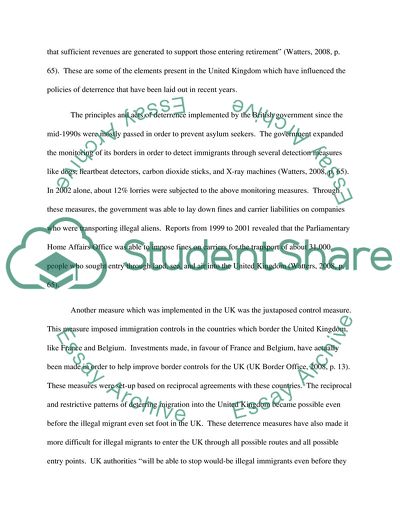Cite this document
(“Policies of Deterrence on Migrants Dissertation”, n.d.)
Policies of Deterrence on Migrants Dissertation. Retrieved from https://studentshare.org/social-science/1730467-what-is-the-effect-of-so-called-policies-of-deterrence-on-migrants-entering-the-uk-you-may-answer-in-reference-to-migrants-in-general-or-to-one-specified-migrant-group
Policies of Deterrence on Migrants Dissertation. Retrieved from https://studentshare.org/social-science/1730467-what-is-the-effect-of-so-called-policies-of-deterrence-on-migrants-entering-the-uk-you-may-answer-in-reference-to-migrants-in-general-or-to-one-specified-migrant-group
(Policies of Deterrence on Migrants Dissertation)
Policies of Deterrence on Migrants Dissertation. https://studentshare.org/social-science/1730467-what-is-the-effect-of-so-called-policies-of-deterrence-on-migrants-entering-the-uk-you-may-answer-in-reference-to-migrants-in-general-or-to-one-specified-migrant-group.
Policies of Deterrence on Migrants Dissertation. https://studentshare.org/social-science/1730467-what-is-the-effect-of-so-called-policies-of-deterrence-on-migrants-entering-the-uk-you-may-answer-in-reference-to-migrants-in-general-or-to-one-specified-migrant-group.
“Policies of Deterrence on Migrants Dissertation”, n.d. https://studentshare.org/social-science/1730467-what-is-the-effect-of-so-called-policies-of-deterrence-on-migrants-entering-the-uk-you-may-answer-in-reference-to-migrants-in-general-or-to-one-specified-migrant-group.


